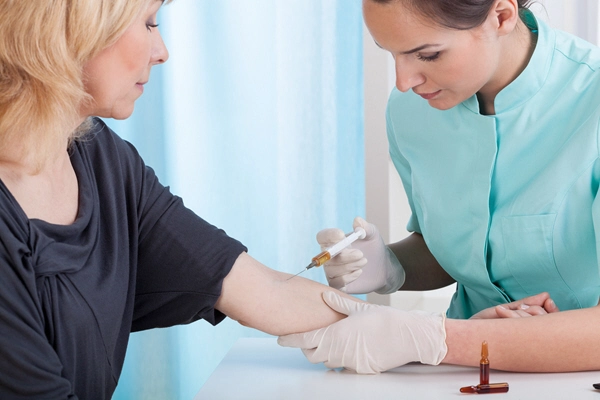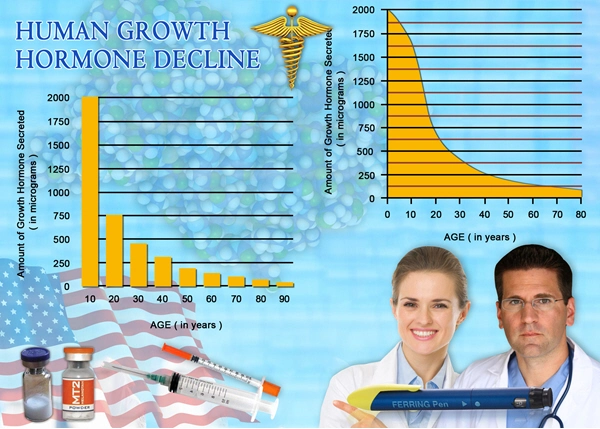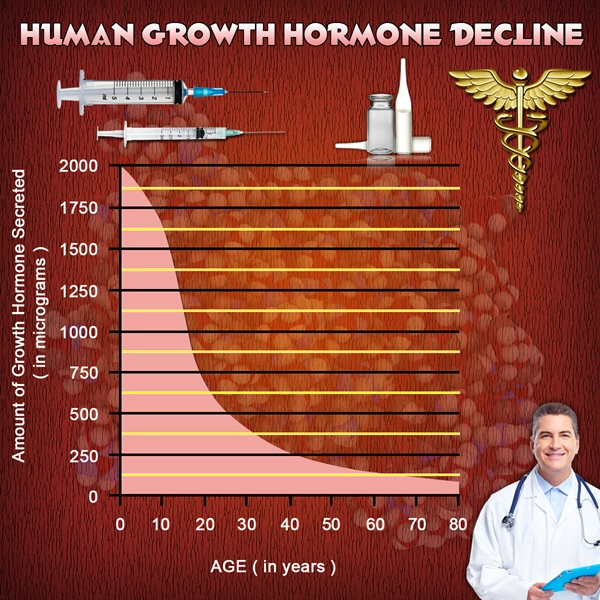Introduction
Sexual health is a critical component of overall well-being, and libido, or sexual desire, plays a central role in sexual health. As men age, changes in libido are common, yet often misunderstood or overlooked. This article delves into the findings of a recent cross-sectional study that examined the influence of age on low libido among American males. By understanding how sexual desire evolves across different life stages, healthcare providers and individuals can better address and manage this aspect of men's health.
Study Methodology and Demographics
The study in question was a comprehensive cross-sectional analysis involving over 2,000 American males aged 20 to 80 years. Participants were asked to complete a detailed questionnaire assessing their sexual desire, frequency of sexual activity, and satisfaction with their sexual health. The demographic data collected included age, marital status, and general health status, which allowed researchers to control for confounding variables.
Findings on Age and Libido
The study revealed a clear correlation between age and libido. Men in their 20s and 30s reported the highest levels of sexual desire, with a gradual decline observed as age increased. By the time men reached their 50s, a significant portion reported experiencing low libido, with the trend continuing into their 60s and 70s. Notably, the study found that while libido decreased with age, many older men still maintained a satisfactory level of sexual desire and activity, suggesting that age alone is not a definitive predictor of sexual health.
Factors Contributing to Low Libido
Several factors were identified as contributing to the decline in libido among older men. Hormonal changes, particularly a decrease in testosterone levels, were found to play a significant role. Additionally, chronic health conditions such as diabetes, cardiovascular disease, and depression were associated with lower libido. Lifestyle factors, including stress, lack of physical activity, and poor diet, also emerged as important contributors to diminished sexual desire.
Psychological and Social Influences
Beyond physiological factors, the study highlighted the impact of psychological and social influences on libido. Men who reported higher levels of stress and anxiety were more likely to experience low libido. Relationship dynamics also played a crucial role, with men in stable, satisfying relationships reporting better sexual health outcomes compared to those in strained or unsatisfying relationships. Social isolation, particularly among older men, was another factor linked to decreased sexual desire.
Interventions and Management Strategies
Given the multifaceted nature of low libido, effective management requires a holistic approach. The study suggests that interventions should address both physiological and psychological aspects. Hormone replacement therapy may be beneficial for men with clinically low testosterone levels, but it should be considered alongside lifestyle modifications such as regular exercise, a balanced diet, and stress management techniques. Counseling and therapy can also be valuable, particularly for addressing relationship issues and psychological barriers to sexual desire.
Implications for Healthcare Providers
For healthcare providers, the study underscores the importance of discussing sexual health with male patients across all age groups. Routine screening for low libido and related factors can facilitate early intervention and improve quality of life. Providers should be equipped to offer or refer patients to comprehensive care that addresses the physical, psychological, and social dimensions of sexual health.
Conclusion
The cross-sectional study on the influence of age on low libido in American males provides valuable insights into the dynamics of sexual desire across different life stages. While age is a significant factor in the decline of libido, it is not the sole determinant. By understanding the various physiological, psychological, and social factors at play, men and their healthcare providers can work together to maintain and enhance sexual health throughout life. As research continues to evolve, it is crucial to keep the conversation about men's sexual health open and proactive, ensuring that all men have the opportunity to lead fulfilling and satisfying lives.

- Revitalizing Passion: Effective Strategies for Combating Low Libido in Long-term Relationships [Last Updated On: February 21st, 2025] [Originally Added On: February 21st, 2025]
- Revolutionizing the Landscape of Sexual Health: Addressing Low Libido through Medical Science [Last Updated On: March 2nd, 2025] [Originally Added On: March 2nd, 2025]
- Comprehensive Guide to Enhancing Male Libido: Understanding Causes and Exploring Treatment Options [Last Updated On: March 3rd, 2025] [Originally Added On: March 3rd, 2025]
- Understanding Low Libido in Men: Causes, Impact, and Treatments [Last Updated On: March 4th, 2025] [Originally Added On: March 4th, 2025]
- Exploring Physical Causes and Treatments for Low Libido in American Males [Last Updated On: March 4th, 2025] [Originally Added On: March 4th, 2025]
- Exploring Hormonal Influences on Male Libido and Sexual Health [Last Updated On: March 5th, 2025] [Originally Added On: March 5th, 2025]
- Comprehensive Guide to Understanding and Managing Low Libido in Men [Last Updated On: March 6th, 2025] [Originally Added On: March 6th, 2025]
- Unraveling the Link Between Anxiety and Diminished Sexual Desire in American Males [Last Updated On: March 6th, 2025] [Originally Added On: March 6th, 2025]
- Understanding and Managing Post-Menopausal Libido Decline: A Comprehensive Guide for Women [Last Updated On: March 7th, 2025] [Originally Added On: March 7th, 2025]
- Understanding and Managing Low Libido in Men: Causes, Impacts, and Strategies for Improvement [Last Updated On: March 8th, 2025] [Originally Added On: March 8th, 2025]
- The Interplay Between Mental Health and Libido: Understanding and Addressing Low Sexual Desire [Last Updated On: March 9th, 2025] [Originally Added On: March 9th, 2025]
- Unveiling the Link Between Chronic Diseases and Low Libido in American Males [Last Updated On: March 12th, 2025] [Originally Added On: March 12th, 2025]
- Exploring Effective Medical Therapies for Low Libido in Postpartum American Women [Last Updated On: March 13th, 2025] [Originally Added On: March 13th, 2025]
- Revolutionizing Intimacy: Cutting-Edge Medical Treatments for Low Libido in American Males [Last Updated On: March 15th, 2025] [Originally Added On: March 15th, 2025]
- Low Libido and Depression in American Males: Causes, Impacts, and Holistic Treatments [Last Updated On: March 18th, 2025] [Originally Added On: March 18th, 2025]
- Psychological Factors Impacting Low Libido in American Males: Insights and Solutions [Last Updated On: March 18th, 2025] [Originally Added On: March 18th, 2025]
- Medication-Induced Low Libido in American Males: Causes, Mechanisms, and Management Strategies [Last Updated On: March 18th, 2025] [Originally Added On: March 18th, 2025]
- Low Libido in American Men: Health Risks and Importance of Medical Advice [Last Updated On: March 19th, 2025] [Originally Added On: March 19th, 2025]
- Exploring Causes and Treatments for Low Libido in American Men [Last Updated On: March 20th, 2025] [Originally Added On: March 20th, 2025]
- Natural Supplements for Low Libido in American Males: Ginseng, Maca, L-Arginine [Last Updated On: March 21st, 2025] [Originally Added On: March 21st, 2025]
- Medication-Induced Low Libido: Causes, Mechanisms, and Management Strategies for American Men [Last Updated On: March 21st, 2025] [Originally Added On: March 21st, 2025]
- Understanding and Addressing Low Libido in American Males: Causes and Solutions [Last Updated On: March 21st, 2025] [Originally Added On: March 21st, 2025]
- Innovative Treatments for Low Libido in Men: Hormonal, Psychological, and Lifestyle Approaches [Last Updated On: March 22nd, 2025] [Originally Added On: March 22nd, 2025]
- Understanding and Boosting Low Libido in American Males: A Holistic Approach [Last Updated On: March 22nd, 2025] [Originally Added On: March 22nd, 2025]
- Chronic Illness Impact on Male Libido: Understanding and Managing Sexual Health [Last Updated On: March 22nd, 2025] [Originally Added On: March 22nd, 2025]
- Exploring Medical Causes and Treatments for Low Libido in American Males [Last Updated On: March 22nd, 2025] [Originally Added On: March 22nd, 2025]
- Low Libido in American Males During Partner's Lactation: Causes and Management Strategies [Last Updated On: March 22nd, 2025] [Originally Added On: March 22nd, 2025]
- Hyperthyroidism and Low Libido in American Males: Mechanisms, Diagnosis, and Treatment [Last Updated On: March 23rd, 2025] [Originally Added On: March 23rd, 2025]
- Diabetes and Low Libido in American Males: Mechanisms, Management, and Future Treatments [Last Updated On: March 23rd, 2025] [Originally Added On: March 23rd, 2025]
- Effective Treatments for Low Libido in American Males: Hormonal, Pharmacological, and Psychological Approaches [Last Updated On: March 23rd, 2025] [Originally Added On: March 23rd, 2025]
- Postpartum Libido Challenges for American Males: Causes and Strategies for Revival [Last Updated On: March 23rd, 2025] [Originally Added On: March 23rd, 2025]
- Understanding and Addressing Low Libido in American Men: Causes, Impacts, and Treatments [Last Updated On: March 23rd, 2025] [Originally Added On: March 23rd, 2025]
- Low Libido in Men: Causes, Medical Solutions, and Lifestyle Changes [Last Updated On: March 23rd, 2025] [Originally Added On: March 23rd, 2025]
- Navigating Low Libido in American Men: Medical, Psychological, and Holistic Approaches [Last Updated On: March 23rd, 2025] [Originally Added On: March 23rd, 2025]
- Understanding and Addressing Low Libido in Women Over 50: A Guide for Men [Last Updated On: March 23rd, 2025] [Originally Added On: March 23rd, 2025]
- Understanding and Treating Low Libido in American Men: Causes and Solutions [Last Updated On: March 24th, 2025] [Originally Added On: March 24th, 2025]
- Understanding and Treating Low Libido in American Men: Causes and Solutions [Last Updated On: March 24th, 2025] [Originally Added On: March 24th, 2025]
- Low Libido in Young American Males: Physiological, Psychological, and Lifestyle Factors [Last Updated On: March 24th, 2025] [Originally Added On: March 24th, 2025]
- Understanding Low Libido in American Males: Causes, Implications, and Treatment Options [Last Updated On: March 24th, 2025] [Originally Added On: March 24th, 2025]
- Sudden Low Libido in American Males: Causes, Diagnosis, and Treatment Strategies [Last Updated On: March 24th, 2025] [Originally Added On: March 24th, 2025]
- Managing Low Libido in Male Surgical Patients: Causes, Diagnosis, and Treatment Strategies [Last Updated On: March 24th, 2025] [Originally Added On: March 24th, 2025]
- Chronic Pain and Low Libido in American Males: Medical Links and Holistic Treatments [Last Updated On: March 25th, 2025] [Originally Added On: March 25th, 2025]
- Managing Age-Related Low Libido in American Men: Medical and Lifestyle Approaches [Last Updated On: March 26th, 2025] [Originally Added On: March 26th, 2025]
- Low Libido in American Males: Causes, Diagnosis, and Effective Treatment Strategies [Last Updated On: March 26th, 2025] [Originally Added On: March 26th, 2025]
- Low Libido in Men: Causes, Impacts, and Seeking Effective Treatments [Last Updated On: March 26th, 2025] [Originally Added On: March 26th, 2025]
- Understanding and Treating Low Libido in American Males: Causes and Solutions [Last Updated On: March 26th, 2025] [Originally Added On: March 26th, 2025]
- Effective Treatments for Low Libido in Men: Medical and Lifestyle Approaches [Last Updated On: March 26th, 2025] [Originally Added On: March 26th, 2025]
- Low Libido in American Males: Treatments, Risks, and Holistic Management Strategies [Last Updated On: March 26th, 2025] [Originally Added On: March 26th, 2025]
- Low Libido and Unhappiness in American Males: A Comprehensive Medical Analysis [Last Updated On: March 26th, 2025] [Originally Added On: March 26th, 2025]
- Managing Low Libido in American Males: Causes, Treatments, and Emerging Therapies [Last Updated On: March 27th, 2025] [Originally Added On: March 27th, 2025]
- Understanding and Treating Low Libido in American Men: A Comprehensive Guide [Last Updated On: March 27th, 2025] [Originally Added On: March 27th, 2025]
- Hypertension's Impact on Male Libido: Physiological and Psychological Connections [Last Updated On: March 27th, 2025] [Originally Added On: March 27th, 2025]
- Low Libido in American Women: A Rising Epidemic? [Last Updated On: March 27th, 2025] [Originally Added On: March 27th, 2025]
- Managing Low Libido in American Males Post-Chemotherapy: Medical and Lifestyle Approaches [Last Updated On: March 27th, 2025] [Originally Added On: March 27th, 2025]
- Strategies to Boost Low Libido in American Males: Medical and Lifestyle Approaches [Last Updated On: March 27th, 2025] [Originally Added On: March 27th, 2025]
- Alcohol's Impact on Libido: Hormonal, Neurological, and Psychological Effects in American Males [Last Updated On: March 27th, 2025] [Originally Added On: March 27th, 2025]
- Low Libido in American Male Athletes: Medical Insights and Management Strategies [Last Updated On: March 27th, 2025] [Originally Added On: March 27th, 2025]
- Post-Surgery Low Libido in Men: Causes, Impacts, and Recovery Strategies [Last Updated On: March 28th, 2025] [Originally Added On: March 28th, 2025]
- Low Libido in New Fathers: Causes, Impacts, and Solutions Post-Pregnancy [Last Updated On: March 28th, 2025] [Originally Added On: March 28th, 2025]
- Exploring Bidirectional Links Between Low Libido and Weight Gain in American Males [Last Updated On: March 28th, 2025] [Originally Added On: March 28th, 2025]
- Understanding and Treating Low Libido in American Men: A Holistic Approach [Last Updated On: March 28th, 2025] [Originally Added On: March 28th, 2025]
- Exploring Causes and Solutions for Low Libido in American Males [Last Updated On: March 28th, 2025] [Originally Added On: March 28th, 2025]
- Low Libido in American Males: Causes, Lifestyle Solutions, and Professional Help [Last Updated On: March 29th, 2025] [Originally Added On: March 29th, 2025]
- Revitalizing Male Libido: Hormonal, Lifestyle, and Psychological Strategies [Last Updated On: March 29th, 2025] [Originally Added On: March 29th, 2025]
- Chronic Low Libido in American Males: Medical Signs and Underlying Causes [Last Updated On: March 30th, 2025] [Originally Added On: March 30th, 2025]
- Strategies to Combat Low Libido in Healthy American Males: A Comprehensive Approach [Last Updated On: March 31st, 2025] [Originally Added On: March 31st, 2025]
- Understanding Low Libido in Women: Medical Insights for American Males [Last Updated On: April 1st, 2025] [Originally Added On: April 1st, 2025]
- Medical Causes and Solutions for Low Libido in American Men [Last Updated On: April 1st, 2025] [Originally Added On: April 1st, 2025]
- Antidepressants and Low Libido in Men: Medical Insights and Management Strategies [Last Updated On: April 1st, 2025] [Originally Added On: April 1st, 2025]
- Rising Low Libido in American Males: Causes, Impacts, and Restoration Strategies [Last Updated On: April 6th, 2025] [Originally Added On: April 6th, 2025]
- Medical Procedures Impacting Libido in American Men: Causes and Management Strategies [Last Updated On: April 6th, 2025] [Originally Added On: April 6th, 2025]
- Understanding Low Libido in American Men: Causes and Holistic Solutions [Last Updated On: April 7th, 2025] [Originally Added On: April 7th, 2025]
- Exploring Causes and Solutions for Low Libido in American Males [Last Updated On: April 8th, 2025] [Originally Added On: April 8th, 2025]
- Understanding Low Libido: Causes, Treatments, and Future Hope for American Men [Last Updated On: April 8th, 2025] [Originally Added On: April 8th, 2025]
- Medical Reasons for Persistent Low Libido in American Men: A Comprehensive Overview [Last Updated On: April 9th, 2025] [Originally Added On: April 9th, 2025]
- Medical Factors Affecting Low Libido in Women Under 40: Insights for American Males [Last Updated On: April 9th, 2025] [Originally Added On: April 9th, 2025]
- Managing Low Libido in Men: Causes, Diagnosis, and Multifaceted Treatment Approaches [Last Updated On: April 9th, 2025] [Originally Added On: April 9th, 2025]
- Understanding and Managing Low Libido in American Males: A Holistic Approach [Last Updated On: April 10th, 2025] [Originally Added On: April 10th, 2025]
- Effective Solutions for Low Libido in Men: Medical and Lifestyle Approaches [Last Updated On: April 10th, 2025] [Originally Added On: April 10th, 2025]
- Medical Insights into Low Libido: Causes, Diagnosis, and Treatments for American Men [Last Updated On: April 11th, 2025] [Originally Added On: April 11th, 2025]



List of USA state clinics - click a flag below for blood testing clinics.
Word Count: 629


















































